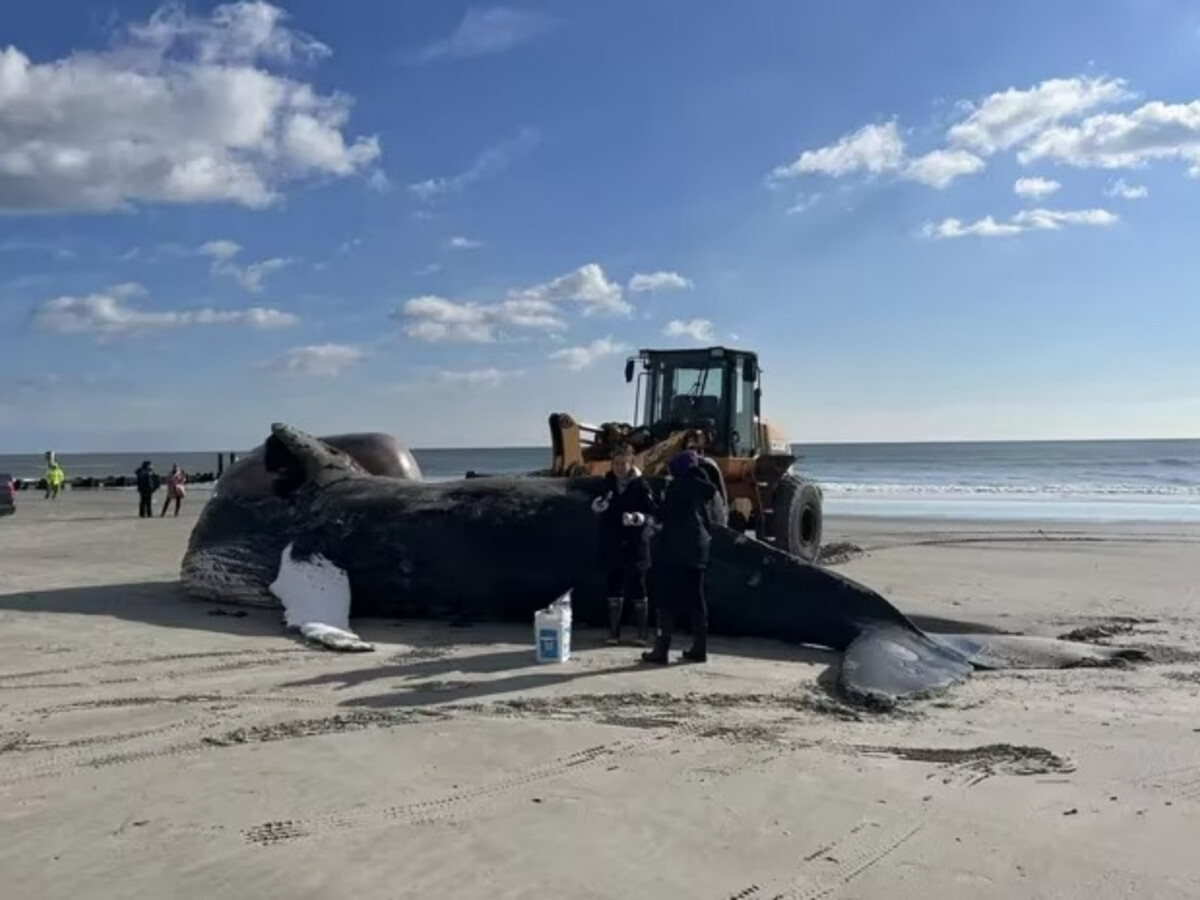NJ DEP Monitors Humpback Whale Mortality Event Amid Concerns Over Offshore Wind Energy
The Department of Environmental Protection (DEP) has been monitoring an unusual humpback whale mortality event that has been affecting Atlantic coast states since January 2016 in consultation with the National Oceanic and Atmospheric Administration (NOAA) Fisheries. In January of this year, the DEP began receiving concerns from stakeholders that the development of offshore wind energy infrastructure off New Jersey’s coast is causing whale mortality.
All offshore wind survey activities have been permitted by NOAA Fisheries and the Bureau of Ocean Energy Management (BOEM) and deemed safe for marine mammals, i.e., no injurious activities have been permitted for offshore wind developers. As of March 2023, no offshore wind-related construction activities have taken place in waters off the New Jersey coast, and DEP is aware of no credible evidence that offshore wind-related survey activities could cause whale mortality. However, DEP will continue to monitor for any potential impact on marine life.
According to the New Jersey Scientific Report on Climate Change (Chapter 5.9), increasing ocean temperatures, primarily caused by the burning of fossil fuels, will adversely impact marine mammals, including whales, their food sources, habitats, and migration patterns. Populations of marine species, including menhaden, a key whale food source, adapt by moving into new areas where conditions are more favorable. Changes that draw prey fish landward similarly increase the risk that these fish and their predators, including whales, may be drawn into conflict with human activities, such as vessel strikes that may increase whale mortality.
DEP administers New Jersey’s Coastal Zone Management Program, regulates certain activities in state waters, including the development of energy-generating facilities and infrastructure, and otherwise coordinates environmental reviews with federal government agencies. DEP expects that all regulated entities, including offshore wind project sponsors, pursue development objectives responsibly, including assessing potential environmental impacts and avoiding, minimizing, and mitigating likely adverse effects upon natural resources, including marine mammals and their habitats.
The Offshore Wind Research & Monitoring Initiative (RMI), a collaborative effort of the DEP and BPU, has authorized $8.5 million in funding to date for scientific efforts to ensure the safe and ecologically responsible development of offshore wind energy. The BPU’s second wind energy solicitation, Atlantic Shores Offshore Wind, LLC, and Ocean Wind II, LLC committed $10,000 per megawatt of project-nameplate capacity awarded – a total of about $26 million – to fund regional research and ecological monitoring of the environmental impacts of offshore wind. The projects are being implemented by a variety of academic and research entities and include work to evaluate and minimize impacts on a variety of marine wildlife, including whales.
DEP is dedicated to the conservation, protection, and restoration of all natural resources, including aquatic habitats and fish and wildlife that rely upon the sound management of marine environments. For more information on the various research projects under RMI, visit https://dep.nj.gov/offshorewind/rmi/ Click on the “Projects” tab. For information on humpback whale mortalities, visit the 2016–2023 Humpback Whale Unusual Mortality Event Along the Atlantic Coast | NOAA Fisheries. Visit https://dep.nj.gov/humpback-whale-unusual-mortality-event/ for DEP's microsite on whale mortalities.















